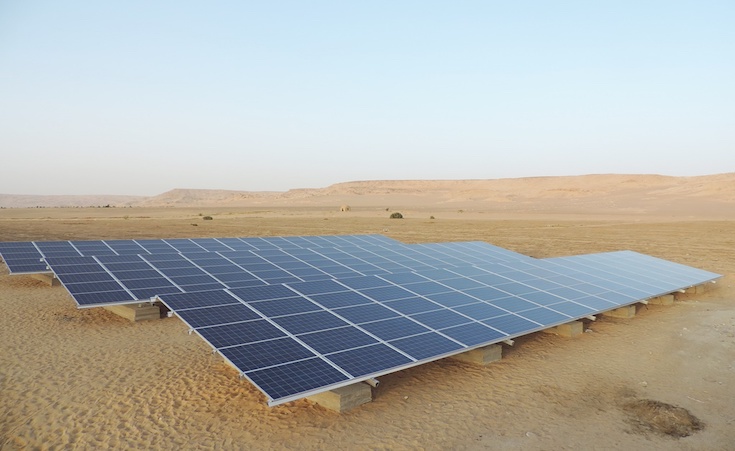UN Development Program Donates $3.5 Million for Egypt to Install Solar Panels
Power up, Egypt. A future plan is in place to diversify our main energy source, hoping to result in a staggering 20 percent of our energy to be sourced from renewables by 2020.

The United Nations Development Program (UNDP) has donated 3.5 million USD under the pretext that Egypt will install photovoltaic systems to power the country.
With an increasing dependence on fossil fuels for energy and the continuous demand for electricity, the Egyptian government is encouraging solar power production on Egyptian soil with the help of the UNDP. The government will pay tariffs to those who feed the grid with energy from renewable sources in hopes that, by 2020, the country will reduce its reliance on fossil fuels, according to Muftah.
The tariff has undoubtedly provided incentives for private companies to place bids and invest in renewable energy supplies. However, 19 of the companies who put their hand up to join the initiative have withdrawn, demanding a higher feed-in-tariff as a result of floatation, according to MENAFM.
The second phase of power purchasing is still going ahead with at least 30 companies negotiating with their investors. The Ministry of Finance is driving renewable energy investment by granting loans at a four percent interest rate. In its five-year timeline, the installation of solar panels is predicted to reach a value 30 million USD.
Egypt’s geographical location and terrain renders it a prime location for the plethora of unusable desert land that can be used to produce energy for the entire nation. The abundance of sun and wind are principle ingredients for the successful implementation of renewable energy sources.
Currently, the country obtains 90 percent of its energy from fossil fuels, however, is aiming to have renewable energy account for 20 percent of Egypt's energy needs by 2020.
Trending This Week
-
Mar 29, 2025































